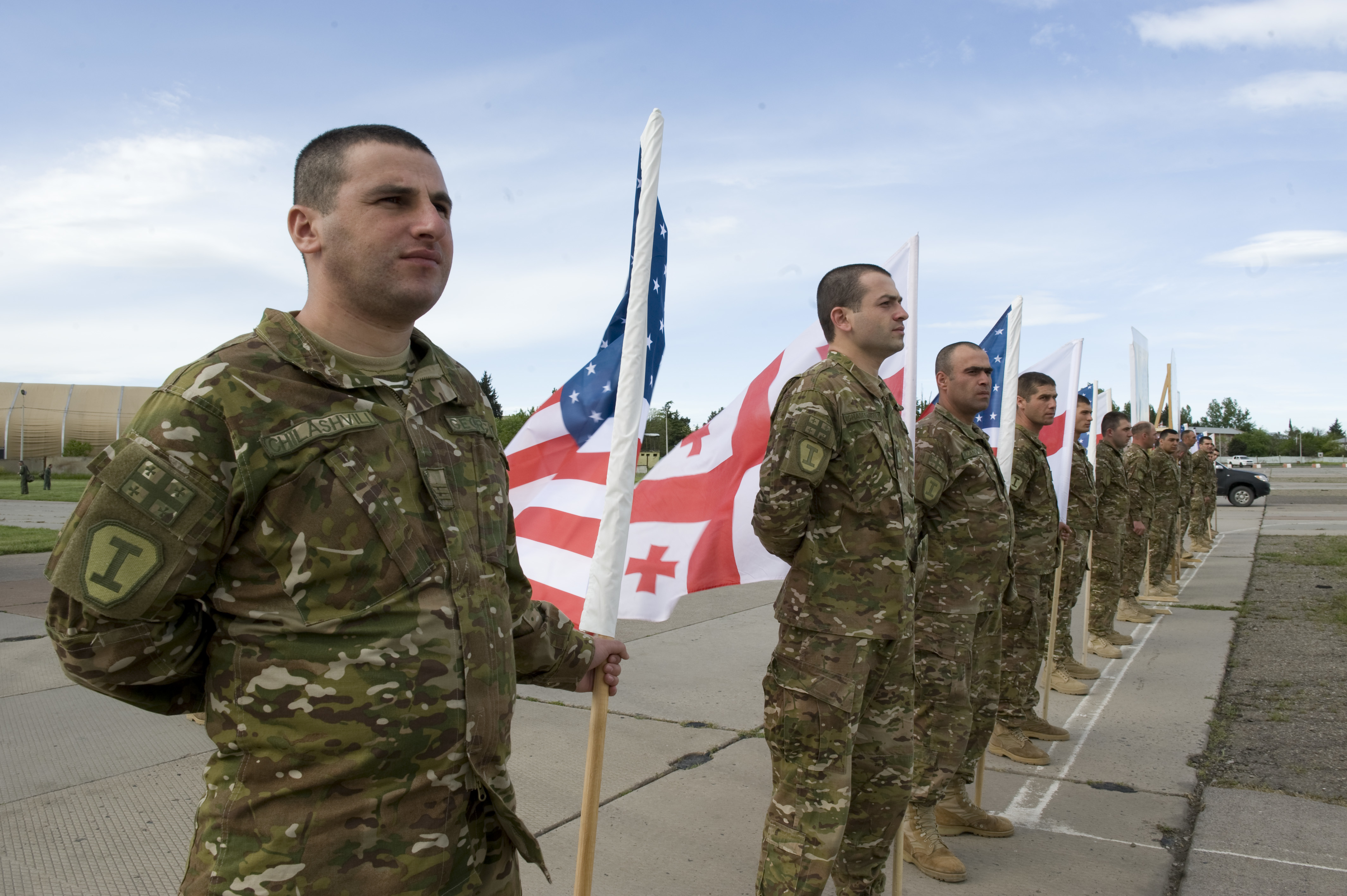Pentagon cancels military exercises with a key ally in the Afghanistan war

The US will “indefinitely postpone” a military exercise with Georgia – once one of the staunchest supporters of the US war in Afghanistan – after the former Soviet state’s leadership introduced a series of Kremlin-style legislation in recent months.
In a press release about the postponement, the Pentagon cited “false accusations” by leaders of the Georgian Dream party, Georgia’s ruling party. Party leaders accused the US and Western allies of pressuring Georgia to open “a second front against Russia” in its war in Ukraine. Party leaders also accused the US of involvement in two failed coup attempts.
However, some experts outside the Pentagon with experience in Eastern Europe see the cancellation of the exercise as a victory for Vladimir Putin’s Russia.
“Our Georgia policy is determined by our actions, and we are withdrawing from Georgia,” said retired Gen. Philip Breedlove, former commander of the U.S. European Command. “This is a bad message. I believe our government is almost completely deterred by Russia. We do nothing to ‘provoke’ Russia, and where Russia exerts its power, we withdraw.”
The Defense Ministry announced on Friday that it was “indefinitely postponing” the annual Noble Partner exercise, scheduled to take place from July 25 to August 6 at the Vaziani and Camp Norio training areas in Georgia.
The breakdown in relations behind the exercise’s cancellation is a decisive turn from the Afghanistan war, when Georgia was the largest troop contributor per capita for more than a decade. Since 2010, Georgia had deployed more than 20,000 troops to Afghanistan, where they were frequently involved in combat operations, Breedlove said.
“It’s really disappointing that our country would treat Georgia this way after they were so steadfast in their support of our efforts in Afghanistan,” Breedlove said. “They basically said we go anywhere an American goes and we do anything an American would do. They were absolutely incredible soldiers, with incredible dedication to their job and their mission, and they served with distinction and valor.”
At least 32 Georgian soldiers were killed in Afghanistan, most of them in heavy fighting between 2010 and 2014 in Helmand province; more than 300 were wounded.
According to Breedlove, Georgian troops arrived in Afghanistan without many of the “caveats” that other countries imposed on their soldiers. While many partners chose to send troops but limited their participation in combat or night operations or required them to remain at their bases, the Georgians did not, Breedlove said.
The news comes as representatives from across Europe meet in Washington DC this week for the 2024 NATO Summit, marking the 75th anniversary of the world’s largest security alliance. Representatives are expected to discuss NATO support for Ukraine in its war with Russia.
But the Georgian Dream under Prime Minister Irakli Kobakhidze is considered one of the country’s most pro-Russian political groups. The party has submitted a bill to reinstate an agent law based on a 2012 law. It requires individuals, civil society organizations and media companies to register as agents if they receive at least 20 percent of their funding from abroad. According to Human Rights Watch, the law aims to “marginalize and discredit independent, foreign-funded groups and media that serve the general public interest in Georgia.” The measure sparked weeks of protests in Tbilisi.
In May, the U.S. State Department announced visa restrictions on Georgian politicians who had worked to pass the law, accusing them of “undermining democracy in Georgia.” After the announcement, a State Department spokesperson said the U.S. hoped Georgian politicians would “reconsider their actions and take steps to advance their country’s long-stated democratic and Euro-Atlantic aspirations.”
Experts are raising the alarm about Russia’s hybrid warfare against Georgia, which has been aimed at weakening the country’s relations with the West through disinformation campaigns since Georgia declared independence over 30 years ago. The country is also financing pro-Kremlin campaigns in the country.
Breedlove said the US decision to withdraw from Georgia means Russia can use all the tools at its disposal “to hamper the government of Georgia and bring the country back under Russian control.”
In previous Noble Partner programs, soldiers from Georgia, the US and the UK trained together on urban operations, defensive positions, combined mechanised manoeuvres and shooting exercises. Hodges said the annual training was important to improve both forces’ shared knowledge of infrastructure, practice movements and “show that we care about the region”.
A political decision
The Pentagon said the US did not take the “decision to cancel” lightly and would continue to work with Georgian forces to “strengthen the country’s ability to protect its sovereignty and preserve its territorial integrity.”
Glen Howard, former president of the Washington-based think tank Jamestown Foundation, said the Biden administration was likely trying to send a “democratic message” that the U.S. was “unhappy with what was happening in Georgia” because the parliament there had passed undemocratic laws registering foreign agents and measures restricting LGBTQ rights.
Subscribe to Task & Purpose today. Get the latest military and culture news delivered daily to your inbox.
Both former U.S. military commanders interviewed by Task & Purpose said the decision ran counter to the West’s broader goals of limiting Russian influence in the region. Retired Lt. Gen. Ben Hodges, former commander of U.S. Army Europe, said the decision reflected the lack of a clear policy in the Black Sea region.
“The decision to postpone the exercises is a political statement, but it has no connection with a well-founded, thought-out strategy for the region,” he said.
Howard stressed the special importance of Georgia as a “cork in the bottle for the party meetings” to prevent the post-Soviet and Eastern European states from drifting towards Russia and turning away from the West.
“In other words, Georgia is going like this, the Russians are cutting off Azerbaijan, they are cutting off the Caspian Sea, they are cutting off the ‘Stans’ and they are controlling the geopolitical destiny of the region and they are controlling China,” Howard said. “The east-west-north-south transport corridors run through Georgia. The geopolitical importance of Georgia has not been lost here and we have to keep that in mind when we make our policy decisions.”
Hodges also said that such a politically motivated decision could undermine future military cooperation between the US and Georgia and give Russia more ammunition to spread anti-American narratives.
“It will reinforce the perception in some countries that maybe the U.S. is not as reliable as it once was,” he said. “If you cancel an exercise because you are unhappy with the Georgia Dream administration, you defeat the whole purpose of the exercise. It’s like cutting off your own nose to spite your face.”
Howard said pro-Russian factions in Georgia would likely welcome the decision, but those in the military who have trained with American troops and are pro-American will not participate.
“At the end of the day, do you want to show these people that you’re there to help them, or do you want to roll up the flag and say, ‘We’re leaving now, guys. See you later,'” Howard said. “This is what it might look like.”



